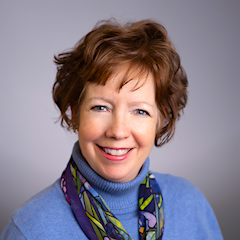 Over the summer, I had the chance to ask our colleague Greg Edge, principal of Attalla (City) Elementary School, why he continues to involve his school and himself in ABPC’s professional learning opportunities.
Over the summer, I had the chance to ask our colleague Greg Edge, principal of Attalla (City) Elementary School, why he continues to involve his school and himself in ABPC’s professional learning opportunities.
I told him about the questions we often hear from potential funders. They want to know – and understandably so – why ABPC has assumed a role in supporting the advancement of educators’ skills and knowledge (and ultimately their effectiveness).
Don’t schools and districts provide their own training? Isn’t there state funding? Why are ABPC programs different from what Alabama educators might otherwise experience?
Here’s what Greg told me:
Professional development through the Alabama Best Practices Center is very valuable to my school and district. It is well-planned and presented, relevant, and important in helping to set the direction and goals of my school.
It is different than a lot of other trainings that we take part in because it is focused on the cutting edge of research and best practice in our profession. It offers a level of professionalism and networking that is very powerful, respectful, and practical as well.
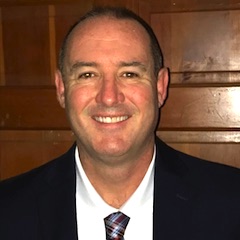 My school has implemented several things we have acquired from ABPC participation, including creating a teacher coaching system built on partnership principles; implementing instructional rounds that allow our teachers to share and learn from each other and outside colleagues; and student-led conferences that not only keep parents informed but help students understand why they are learning what we teach them.
My school has implemented several things we have acquired from ABPC participation, including creating a teacher coaching system built on partnership principles; implementing instructional rounds that allow our teachers to share and learn from each other and outside colleagues; and student-led conferences that not only keep parents informed but help students understand why they are learning what we teach them.
My school district uses a lot of the research we gain through ABPC participation in vertical training meetings for the entire system, top to bottom. Our administrators are involved in the Key Leaders Network (KLN). Our coaches and teachers participate in the Powerful Conversations Network (PCN). And I have been personally been involved in both KLN and some of the Instructional Partners Network activities network for over eight years.
The biggest change I have personally seen in myself is the ability to effectively listen and collaborate/partner with others to make important changes needed for our students. I have formed several relationships with people outside my system who I have come to really respect and who have helped me to grow professionally.
I really enjoy meeting and networking others who do my job, because there is only one of me at my school. I know I can reach out to others either via email or phone to get ideas or schedule school visits to learn how they are addressing the same problems and opportunities I’m experiencing in Attalla.
People who care a lot about education but are outside the daily work life of educators may not fully appreciate how valuable those kinds of relationships can be. But I expect they find the same thing to be true in their own work. Whatever profession we’re in, we learn the most – and share the most – with the people who do the same work we do. Among the many things ABPC does for us, they help us find those people.
I can’t fully express how grateful I am to Greg for so clearly and eloquently answering my question. This is what the Alabama Best Practices Center has always strived to be – a catalyst, a connector . . . an opportunity for very busy and committed educators to shift gears and think about the big things, not only as individuals but with other educators in their systems and with colleagues from other districts, including many they might be meeting for the first time.
Spending the day at Key Leaders Network today! Stepping back to think and learn about our IMPACT. #AmplifyOurImpact @al_bpc @cathygassenheim @Question2Think pic.twitter.com/0SqunmA9xv
— Dr. Paige Raney, NBCT (@PaigeRaney) August 22, 2019
The insights from Greg Edge inspired us to add two questions to the Key Leaders Network feedback survey for our first meetings this year. Here are a few of the many encouraging responses we received.
✻ Why do you find participation in the ABPC network(s) valuable?
► It is critical — today’s educators don’t have enough time to connect with other systems. (Courtney Wilburn, Deputy Superintendent, Calhoun County Schools)
► This is powerful learning! Learning is truly facilitated and ideas and strategies come from everyone participating. (Renee McManus, Curriculum Specialist, Mobile County Schools)
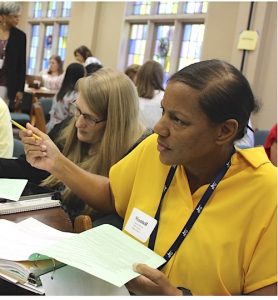 ► I love collaborating with other districts and learning from them. I also enjoy learning research based approaches and taking those back to our district. (Ingrid Abner, Coordinator of Technology and Testing, Tarrant City Schools)
► I love collaborating with other districts and learning from them. I also enjoy learning research based approaches and taking those back to our district. (Ingrid Abner, Coordinator of Technology and Testing, Tarrant City Schools)
► It offers a research based way of thinking about best practices. (Antonio Cooper, Director of Curriculum & Instruction, Vestavia Hills City Schools)
► It’s my first time attending in awhile. I was really impressed with the intentional focus on how participants learn and what the learning plan will be for this year. It’s so relevant! (Christy Christian, Principal, Crestline Elementary, Mountain Brook City Schools)
► Nothing else goes this deep with research. (Jodie Jacobs, School Improvement, DeKalb County Schools)
► The adult learning protocols ABPC uses in its professional development sessions ensure quality and an effective use of time. Your sessions do that better than most anything I’ve done. ALL of our staff, to a person, really appreciated the value you place on the use of time. It’s not the oh-so-typical lecture and then turn-and-talk about something not engaging, where participants end up chatting about something else! (Patrick Chappell, Director of Instruction, Homewood City Schools)
► KLN extends my learning, exposes me to great professional literature, and provides the best kind of networking. (Shelly Mize, Superintendent, Tarrant City Schools)
► It’s the best professional organization that I have ever been involved with for an extended period of time. (Christy Amick, Principal, Chickasaw Elementary, Chickasaw City Schools)
✻ How are you using what you learn in your district/schools?
► To dig deeper in our district admin meetings and principal meetings. (Shelly Mize, Superintendent, Tarrant City Schools)
► I use the protocols and knowledge I gather at ABPC meetings during our PD and collaborative meetings at school to increase teacher efficacy and engagement. (Heather Hapworth, Instructional Coach, Baldwin County Schools)
► It becomes part of the embedded professional development in our schools. (Emily Harris, Coordinator of Instruction, Talladega County Schools)
► It helps us lead teachers to make pedagogical changes for the better. (Adam Clemons, Principal, Piedmont High School)
► KLN gives me opportunities to gather ideas that are working from other schools/districts and share them during walkthroughs, data and unit meetings, and conferences in our district. (LaKeshya George, Principal, Hard Elementary, Bessemer City Schools)
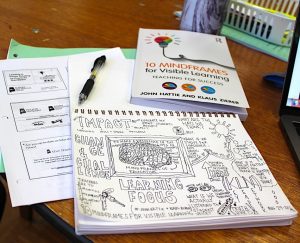 ► The content is always relevant and delivered in a way that helps me stretch my thinking and improve my skill level. It helps inform my state training and support. (Christine Spear, School Improvement, Alabama State Department of Education)
► The content is always relevant and delivered in a way that helps me stretch my thinking and improve my skill level. It helps inform my state training and support. (Christine Spear, School Improvement, Alabama State Department of Education)
► This is deep and sustained learning. I embed my learning in leading the school with every book we read! (Julie Pierce, Principal, Fairhope Elementary, Baldwin County Schools)
► I’ve learned best practices for implementation of professional development that will help me build collaboration and conduct trainings for my teachers more effectively. (Demond Garth, Principal, Cedar Ridge MS, Decatur City Schools)
► I will be sharing the importance of Hattie’s 10 Mindframes with teachers and leaders in the school systems I support. (Mindy Cooper, Math Specialist, Alabama Math, Science and Technology Initiative – AMSTI)
► We will be using what we learn in these KLN sessions at the school level to help teachers who are struggling. (Curtis Atkinson, Assistant Principal, Blount County Schools)
► I will be using the ABPC protocols to engage our own adult learners – “using reflection to create impact” is our theme for the year. We will make action plans for High Impact strategies using what we have learned. (Khristie Goodwin, Curriculum Coordinator, Oxford City Schools)
Thanks to everyone for the feedback. We’re looking forward to continuing the sharing!
Cathy Gassenheimer is Executive Vice President of the A+ Alabama Best Practices Center
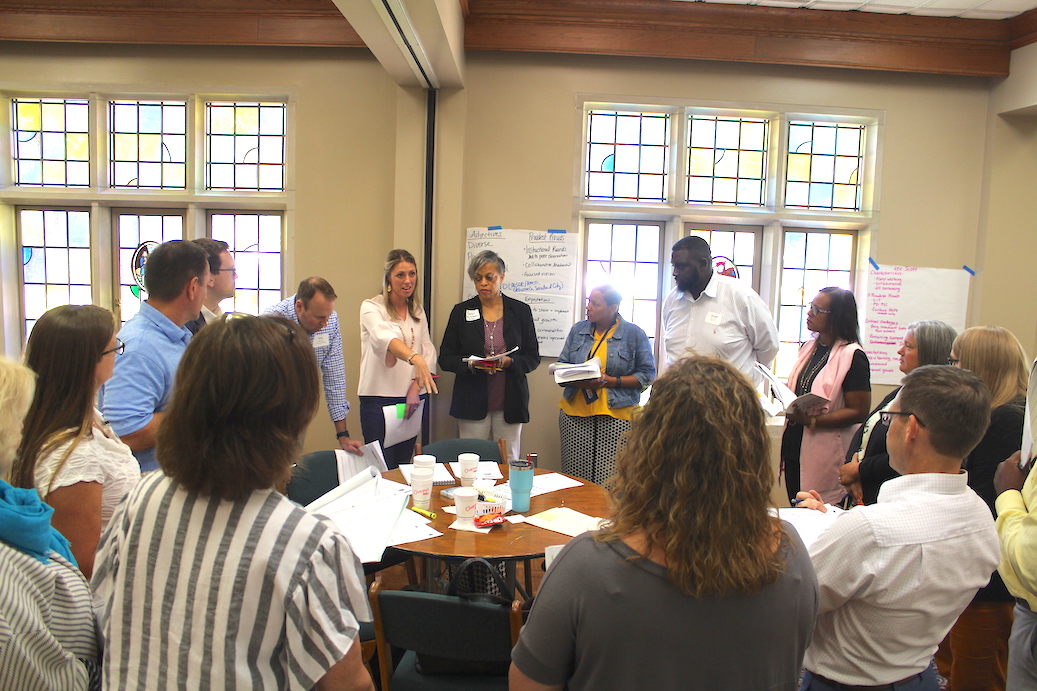

0 Comments on "Why Do We Need the Alabama Best Practices Center?"